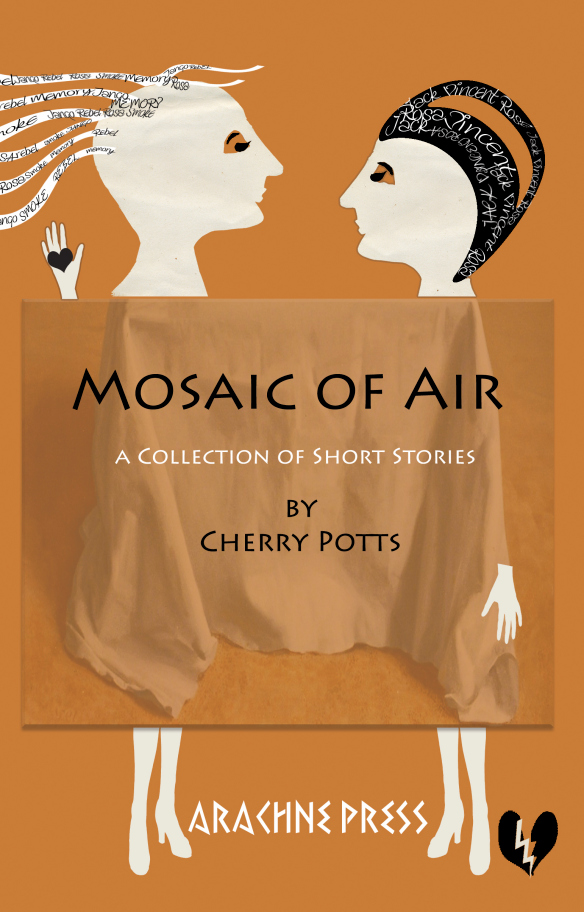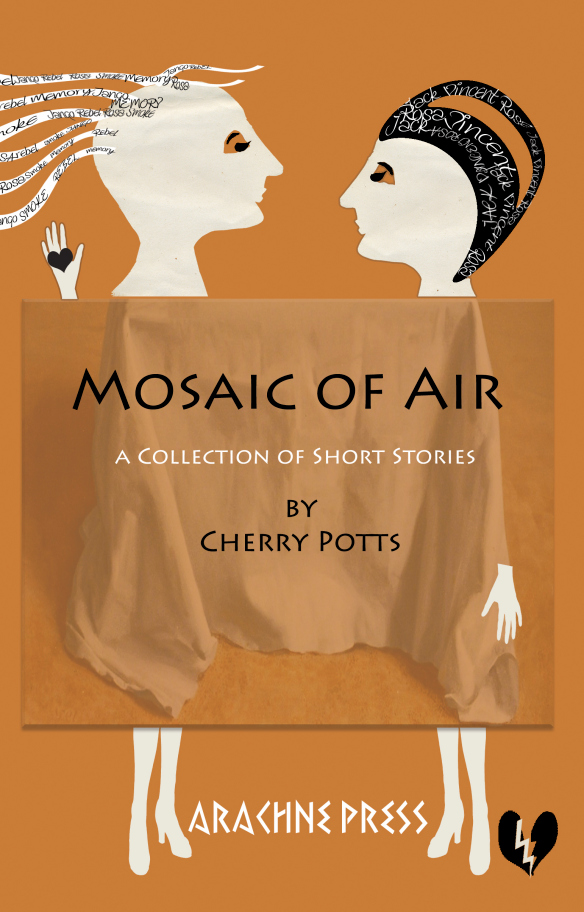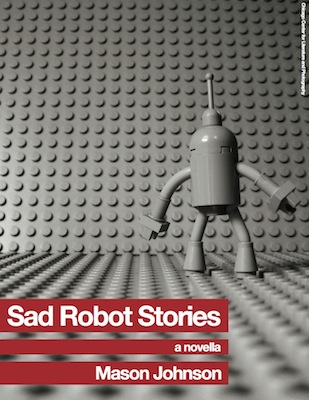Mosaic of Air by Cherry Potts
-Reviewed by Andie Berryman–
Mosaic of Air is a lesbian collection originally released in 1992 with its re-release in 2013. So why re-issue stories from a particular era, in this case the 1980s: would the stories now be a bit dated? In her foreword, author Cherry Potts examines this decision herself, she points out which particular lines are now mercifully obsolete (such as ”He couldn’t very well marry Phillip, could he?”), but also points to the stories which still, sadly, portray elements of contemporary lesbian life.
There’s a short piece called ‘Second Glance’ about a woman ‘cautiously searching for the cues’ before speaking to a woman in a bar (which the author points to in the foreword), I passed it around some LGBT friends (in their 20s and 30s) to gauge a reaction, they all read the piece, nodding their heads and simply saying ‘yes’.
The ground-breaking era of the second wave of feminism and the elements of women’s lives is present throughout the collection. In ‘The Ballad of Polly and Ann’ that element is incest. Not many words are wasted on the perpetrator, rather the main protagonist’s unorthodox journey takes precedence. This (to my mind) mirrors the rise of rape crisis centres during the 1970s and 1980s, which started life primarily tackling incestuous abuse.
Then there’s the reclaiming of myths. The great joy in reading a Feminist collection like this is the re-imagining, from Woolf to Winterson, Cherry Potts also reimagines Helen of Troy as a mere beautiful pawn in the powerplay of the ancient world, but who, like most women in today’s society, negotiates the system. If you read nothing else in this book you must read ‘Arachne’s Daughters’; this takes apart a myth about Arachne (a human) challenging Athene (the goddess): ‘ ”Now, can you believe anyone would be so stupid?” ‘. It’s set as a speech given at a women-only meeting with a clever twist on why so many women shouldn’t fear spiders despite the extra legs and pincers ‘ ”Forgot something though didn’t they?…[Men]… How many Cancers and Scorpios are in the audience?” ‘.
Throughout is the filling of silence through the writing of experience. That’s quite clearly laid out in ‘Winter Festival’, a piece about being alone on what should be a day of being with a loved one: ‘ ”A day like any other, except perhaps for our expectations of it: unreasonable, companionable expectations”. One couldn’t imagine that story being relevant to the here and now, but it’s happening somewhere, to someone.
Another element in the canon of feminist writing is science fiction. There always seems to be a reaching out to space, a place which shouldn’t replicate patriarchal norms, but somehow does and distorts them slightly. ‘Mosaic of Air’ is an interesting parable featuring a proto-post-feminist lead, a computer programmer whose programme becomes sentient which surprisingly encases an abortion debate.
There is longing, there is the blessing of lust requited, written to my mind on a low frequency; this is what happened, it’s important that it’s displayed as an everyday facet of life. Cherry Potts’ writing quite rightly points out that lesbian life has been portrayed like an old postcard left behind the carriage clock on the mantelpiece for years; visitors have noticed it and yet not bothered to pick it up and discover the message on it, because it’s from Hebden Bridge and not Brighton’s clubs.






Pingback: Review of Mosaic of Air | Arachne Press
Pingback: New Review of Mosaic of Air | Cherry Potts, Writer
Pingback: News Roundup: Mari Hannah Wins the Polari Prize, Nottingham’s Newest Book Shop, Interviews with Kiki and KE, New Novels, Reviews, and More! | UK Lesbian Fiction